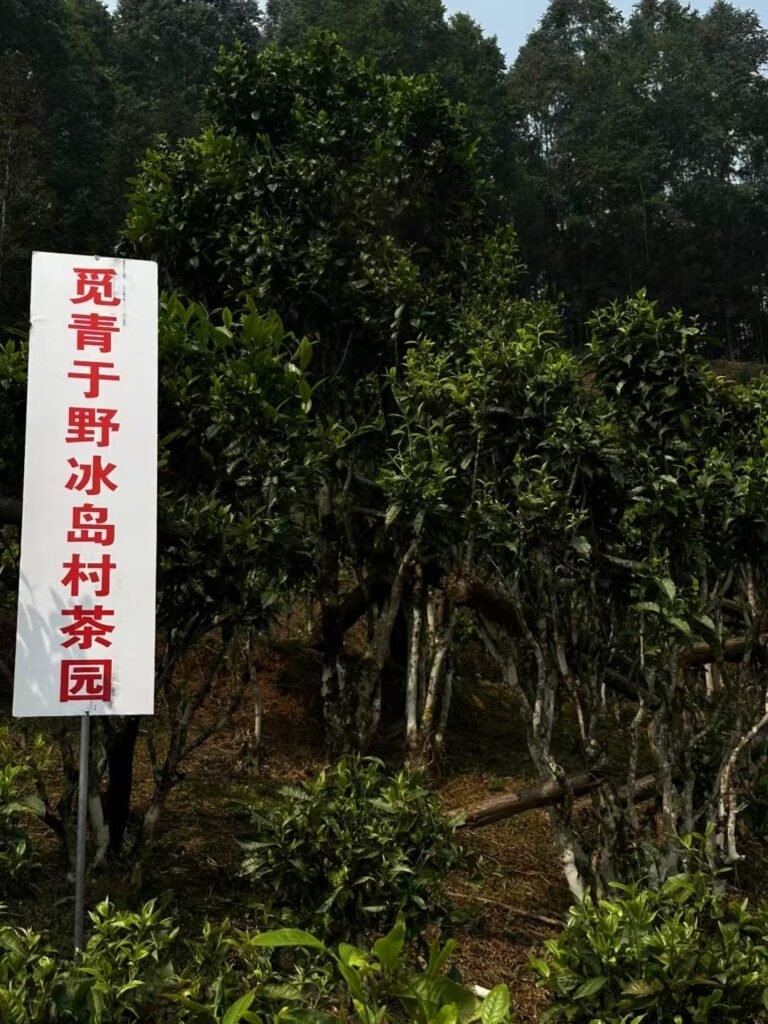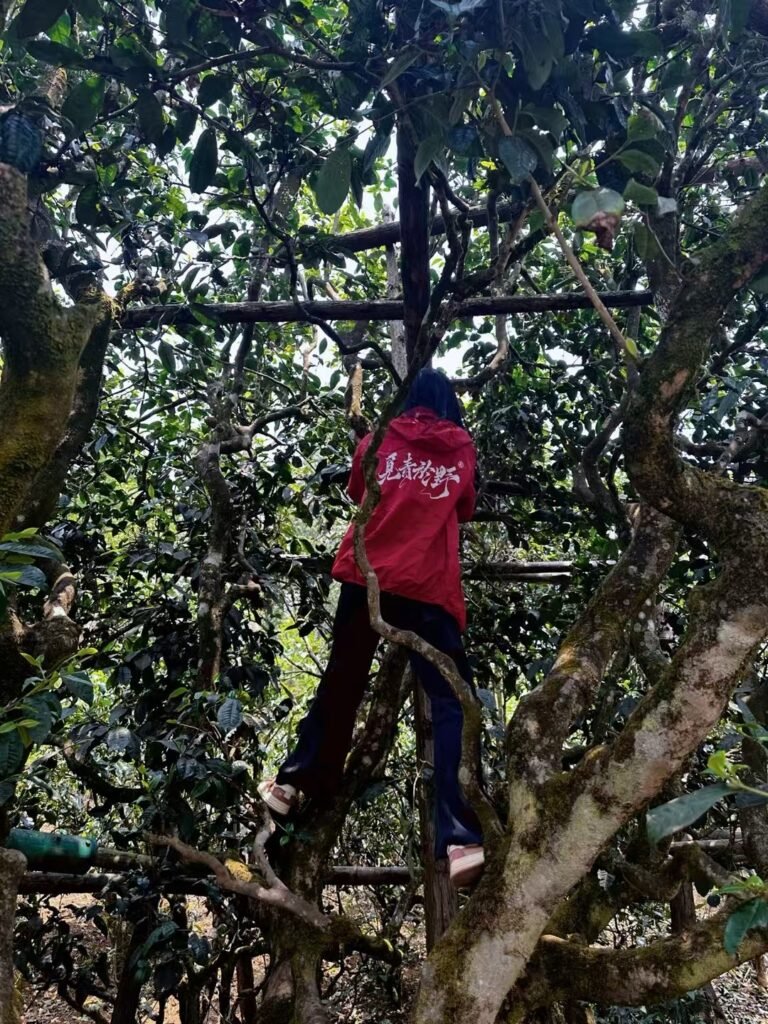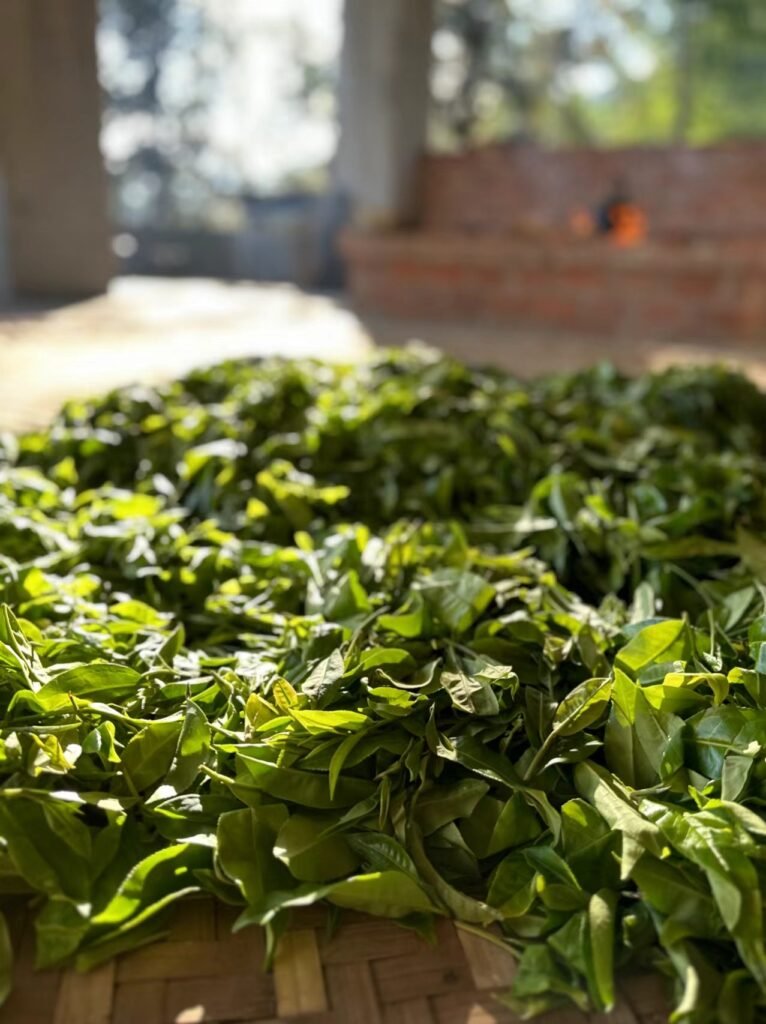Description
Origin & Ecological Environment
Bingdao Black Tea comes from Bingdao Village—a small, renowned tea-growing area in Lincang City, Yunnan Province. It’s located on the Eastern Half Mountain of Mengku Town, which is one of the core regions for high-quality Yunnan teas.
Bingdao Village has a several-hundred-year tea-growing history, with local farmers passing down traditional planting and harvesting methods. Unlike mass-produced black teas, Bingdao Black Tea uses leaves from 200 years old tea trees in the village. Its remote location—far from industrial areas—keeps the tea pollution-free, making it popular among purity-focused tea lovers.

Appearance & Taste
- Dry Tea:The dry leaves have a deep reddish-brown color, with a hint of honey and dried fruit aroma
- Tea Soup Color :The tea soup is a bright, rich amber-red liquid, clear and luminous when held up to light.
- Flavor Characteristics:Bingdao Black Tea undergoes gentle full fermentation (a key process for black tea), so there’s almost no bitterness or astringency. Unlike some astringent black teas, it offers smoothness with obvious sweetness—hints of honey and ripe berries unfold on the palate. It’s a great pick for those who love mellow, sweet black teas with clear fruity undertones.

Brewing Guide
Warm the Utensils
Rinse the Gaiwan (lidded bowl), fairness cup, and tasting cups with boiling water to preheat the tools and remove any residual odor;
Measure Tea Leaves
Follow a 1:15 tea-to-water ratio (e.g., 5-7g tea with 100ml water) and add the dry tea leaves into the preheated Gaiwan;
Rinse the Tea
Pour boiling water over the leaves, then pour out the tea soup within 10 seconds (do not drink this batch) to awaken the tea’s vitality;
Formal Brewing
Add boiling water again, cover the Gaiwan, and steep for 15-20 seconds (increase steeping time by 5-10 seconds for subsequent brews). Then strain the tea soup into the Gongdao Cup;
Serve and Taste
Evenly pour the tea soup from the Gongdao Cup into tasting cups, and enjoy while hot to savor the tea’s layers and sweet aftertaste.
We follow the traditional way to make ancient tree black tea



Harvesting
We adopt professional standards and harvest only in spring, allowing ancient tea trees to fully accumulate nutrients and avoiding over-harvesting, which tends to weaken the trees. And we harvest only “one bud with one or two leaves ” to meet the requirement for the delicate taste of ancient tree black tea.
Withering
Leaves are gently spread out to soften and losen.
Rolling
The leaves are rolled by hand to break down cell walls and release their inner compounds.



Fermentation
Place the rolled leaves in a warm, humid space. Let them ferment until they turn reddish-brown—this creates Bingdao’s signature honey-fruity aroma.
Drying
Dry the fermented leaves at low temperature to stop fermentation. This locks in the flavor and keeps the leaves dry for storage.
Sorting
Remove small stems or broken pieces to ensure only high-quality leaves are used for the final tea.
Tea aging
About 357-gram Tea Cake
This classic weight standard originates from the traditional Pu-erh tea specification established in 1735. The number “3” symbolizes the “Three Talents (Heaven, Earth, and Man)”; “5” represents the “Five Elements”; and “7” symbolizes the “Big Dipper” — perfectly interpreting the cultural connotation of the unity of heaven and man. This specification can promote balanced energy flow in the tea and achieve stable flavor transformation during storage.



Reviews
There are no reviews yet.